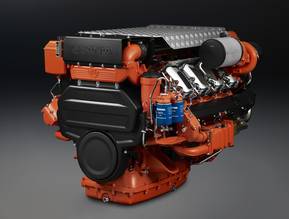Intertek Addresses Global Mercury Pollution
Intertek will tackle the issue of mercury pollution across industries during the “International Conference on Mercury as a Global Pollutant” (ICMGP) in Edinburgh, Scotland, July 28 to August 2, 2013.
Intertek will showcase expertise in detecting, monitoring and controlling mercury, supporting industries such as food, consumer products and oil and gas. Recent Harvard studies have shown that mercury is a long term problem, as past accumulations built over thousands of years could persist for centuries. The Harvard study advocates prompt reductions in mercury, suggesting that if nothing is done, levels of mercury in the ocean could double by 2050.
The ICMGP conference will address and focus upon the upcoming adoption and implementation of the UN sponsored Minimata Convention to control mercury in the environment. International experts will evaluate solutions and challenges to controlling mercury pollution in light of the UNEP Minimata agreement. The treaty is expected to be ratified in Japan this October.
Ruud Overbeek, Vice President for Global Health, Environmental & Regulatory Services at Intertek said, “Managing mercury concentrations present in raw materials and finished products to achieve safer, acceptable and compliant levels is important for producers, users, consumers and our environment. The accumulation of mercury to unsafe concentration levels in the food chain, for example, can have serious health implications. As a consequence, regulators and safety authorities strictly regulate concentrations in food products. Intertek expert trace residue analysis services help ensure products meet required safety standards.”
Specialists from Intertek will share their expertise in mercury detection and analysis across oil and gas, coal, petroleum, seafood and consumer goods including electrical and electronic products.
Peter Spitz, Intertek Mercury Technical Manager for East Asia, has pioneered and developed laboratory trace mercury testing methods for the oil and gas industry. Peter commented; “Along with environmental concerns, trace-levels of mercury in crude oil can affect product quality, market price, create expensive refining and processing problems, and promote materials corrosion and cracking.”
“The mercury analysis techniques developed by Intertek support our client’s mercury control objectives, and provide important validation and benchmarking for optimizing and managing the control of mercury levels.”














